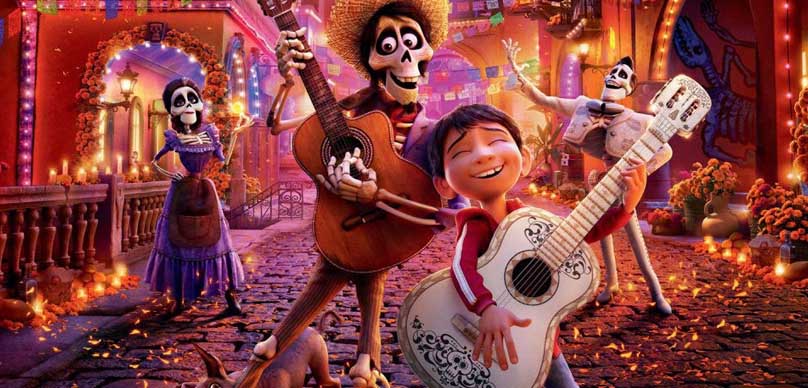Right-click here to download the MP3
Today’s guest is actress Cobie Smulders. You may recognize Cobie from blockbuster films like The Avengers, The Avengers: Age of Ultron, Captain America: Winter Soldier and Jack Reacher: Never Go Back. She’ll also be in the new Spidey film Spider-Man: Far from Home. I’ve been a fan of Cobie’s for a while now. Her ability to jump from mega-blockbuster to ultra-low budget indie film has always fascinated me.
One of the main reasons I wanted to chat with Cobie was to discuss her new film Alright Now. What makes her new film unique is that it was shot 100% Improv-style, just like I shot my film This is Meg and On the Corner of Ego and Desire. I wanted to see why an actress used to shooting big studio tentpoles would be attracted to making a low budget improv indie in the UK. What was her experience being out there acting with no net. Also what it was like working with Jamie Adams (who will be a guest in the show soon), the writer/director of Alright Now. Here’s a bit about the film:
ALRIGHT NOW follows Joanne (Cobie Smulders, “How I Met Your Mother, Avengers”) a rock musician who drunkenly enrolls in college after she breaks up with her boyfriend and her band falls apart. Convinced she will give the youngsters a run for their money, Joanne is shocked to discover that no one knows who she is and they could care less about her rock star past. Completely improvised and Directed by Jamie Adams (Black Mountain Poets), ALRIGHT NOW is a feel-good comedy about love, life and the search for new beginnings.
Enjoy my conversation with actress Cobie Smulders.
Alex Ferrari 1:36
Today on the show, we have actress extraordinare Cobie Smulders from the new film all right now now, I generally don't have actors on I have them every once in a while and of over 260 episodes that I've done. I've only had a handful of actors on and I wanted to bring Colbie on one because I am a huge, huge fan of cobis ever since how our our met your mother, where she was one of the stars of that, as well as because I'm a comic book geek. All of her work on the Marvel films, as well as Jack Reacher and other amazing projects is done. And she's generally known now for doing a lot of big blockbuster style movies. But this movie all right now was a small indie movie. And I wanted to kind of go inside of her mind of how she chose the project, what she was doing. And the cool part about this project was that it was shot in five days, completely improv by director Jamie Adams from the UK, who is going to be a guest on the show on Thursday, actually. So we're going to be bringing him on as well to discuss his process. But I wanted to hear what Cobie had to say about being an actress of her statute to be out on the edge that way of being completely free and scared to death because there's no net to catch you out there as an actor as a as a creator, when you make films like this, because that's my first two features are made were made the exact same way. And I wanted to hear her point of view of how she felt as an actress, what drew her to the project, and if she would do it again, so I can't wait for you guys to listen to it. Now. One little side note the audio pops in and out a little bit. We had a rough connection with Cobie but overall you're going to be here most of everything she has to say. But there will be a little bit of issues with the audio. So just wanted to make that perfectly clear to everybody listening. So without any further ado, please enjoy my conversation with Cobie Smulders.
Cobie Smulders 3:39
Hi!
Alex Ferrari 3:40
How are you?
Cobie Smulders 3:42
I'm doing so good. How are you?
Alex Ferrari 3:43
I'm fantastic. I literally just finished watching all all right now and it was really great. You did a fantastic performance.
Cobie Smulders 3:49
Oh, that's very, very kind of you. Yeah, it was a it was a fun little passion project. Tiny little movie.
Alex Ferrari 3:57
Right. And I will Yeah, considering that you used to you know, work running around with Thor and Hulk. I mean, I'm assuming
Cobie Smulders 4:05
That's a slightly different film and that kind of stuff.
Alex Ferrari 4:08
And when I when I first saw the trailer reminded me of your, your character Robbins alteration ego in How I Met Your Mother.
Cobie Smulders 4:16
Yeah. As I know, it is a little bit about like, if if Robin daggers had been, you know, more successful, you know, she might have gone on to just milk that and turn into Joanne Skye. Exactly. So what? So what drew you to the project? Well, we don't know each other very well, but I like your challenge. And this movie certainly presented that in the sense that it was going to be shot in three days or three days, five days. It was completely improvised. We shot it in Cardiff and England. Nice and Yeah, it was just this like, weird little It was almost like acting camp, we would all we all slept in the same house together. It went into work, we had breakfast together, right right upstairs. And we kind of discussed, okay, these are the things that we kind of need to get done. Like I said, there's this script. So we would sort of generally know what we had we like, information we had to give the audience and each scene. And that was the only guideline we had. So it was just wild and wacky and I'd had never done a completely improvised film. And I'd seen some of his Jamie Jamie Adams, our director, I'd seen some of his other films. He's just finished this movie called Black Mountain poets, which was completely improvised, and it just looked like so much fun. And I was like, You know what? I'm going to go to London. I'm gonna go to England for a week, just shoot this movie and have this like, amazing, fun experience. And see what comes of it.
Alex Ferrari 6:02
That's amazing. Yeah. I kind of felt that because I had a little bit of a sua Swanberg and duplass. Brothers. Yeah. style to it without question. And you worked with Joe Swanberg, his wife on x unexpected? Yep, exactly. And that was that that was an improvised that was more scripted. No, that was scripted. That was scripted. Yeah. Yeah. But that must have been so much fun. It just going out there. And just like it well, first of all, how did how did you get pitched? Like, how does someone pitch you a film like this? How did this come into you?
Cobie Smulders 6:36
Because I mean, I don't know. Jamie is like Jamie is kind of, like, he's very, he knows so much about movies, and actors and performers. directors like I don't know exactly how I got on his radar for this. But he just kind of came after me. And, and since then we've become really great friends. But he just kind of comes up with these ideas. And since our movie, I mean, he's got to shoot like four more other four other ones that are completely improvised as well. So we just kind of gets an idea. And you just really see that through. So he just pitched it to my agent. And when I sort of heard about the parameters, all the things I just went through with you, I was like, this seems like totally insane. And I'm in
Alex Ferrari 7:35
it does take a brave actor or actress to to go down these roads, because it you're out there without a net.
Cobie Smulders 7:42
Basically, you got to do it, you know, and I I am all always trying to challenge myself. And I live a very simple, boring existence. I'm a mom. And I get to do some amazing projects. And I get to do some crazy work, but nothing where it's like, Alright, so in this scene, you are mad because of this, go and you just say whatever you want, and you can move wherever you want. And you can wear whatever you want. And you can be drunk or you don't have to be drunk. I mean, it's just like it. It's fun. It's just it's kind of like it reminded me of my youth, you know, like, doing like weird Improv Theater, you know, being like on some weird, small stage and in Canada just making up shit. And I was just so happy to like, be in that place. Again, everybody was just so lovely that we just saw on your blog,
Alex Ferrari 8:39
Like when that first pseudo lovemaking scene that you had, where it starts doing the dancing and the stripping it Yeah, that's that energy was so visceral. You could feel it come right. That was happening into the moment. It wasn't taped to it.
Cobie Smulders 8:54
Yeah. No, no, it will be time to meet him. For Richard do that. But we, we did it a few times. But it was with this medium, I think the way to do it. First of all, I learned, you know, toward the end, which was unfortunate for me that you don't ever want to do your coverage first. Because you kind of you find out what the scene is sort of toward the end of your coverage. And then so the person who goes next knows exactly what the scene is going to be and what it's about us. But when you go first, which I always did. It was really you just didn't know what to say or do and then something magic would happen. And then you try to recreate it but you couldn't and it was really, it was interesting, but you would have to do see quite a few times to go. What is as exactly and we're okay, so we'll do it again. But I won't go on to the bed. I'll come over here because it's like It's a group effort, right? Not only are we improvising, but the cameras improvising, and poor, you know, the poor boom operators, just out in the middle of the sea just doesn't know where he's going to be going next. And, you know, maybe departments all does, you know, it's all everybody is sort of, like, doesn't know what's what's going to happen next. So it's, it is very much a group effort. And it felt really cool to be a part of something where everybody was, creatively involved moment to moment. Yeah, you know, like, obviously, on a set, everybody is involved creatively, but this is like, we're all fully focused, everyone is paying attention, cuz we don't know what exactly is gonna happen.
Alex Ferrari 10:45
And where we're gonna end where it's like, you really are out there without a net. And it's a wonderful idea. It's so wonderful. It's like, You're, you're out there on the edge. And it's a wonderful place to be creatively. As an actor, as a director as everybody, even a camera guy. It's like, I don't know what's gonna happen next. It does keep me engaged.
Cobie Smulders 11:03
Exactly. Yeah, definitely.
Alex Ferrari 11:05
Now, your film filmography is pretty diverse. How do you pick your projects?
Cobie Smulders 11:13
I like to try to switch it up, I like to do different things. But I do get blessed a lot of the time, with playing strong female roles, which I definitely enjoy putting more of them out into the world. But I've been, I think it's it for me, it comes down to it's sort of like a checklist now, or it's like, you read a script, and you're like, oh, the writing is really great. Or this character is interesting, I haven't done it, or this character, like, is another version of something I've done, and I could kind of do it in a different way, and whatever it's going to be, and then you go, like, who's the director that? Who else is involved? And now because I have two children's, like, where does it shoot? So there's sort of a, there's sort of a variety of, of things to think about, but really what it comes down to it, you know, if I gravitate towards a character, um, and I can see myself playing it, or I go, what is this character, I've never done it before. I'm usually drawn to the character that I'm playing. I also like, it's hard to find a very well written script. And especially in this day and age, I mean, we're talking about a completely improvised movie right now, you know, you know, going into every project, that the words that you're reading on the page are are going to change. And there's, when you're on set on the day, things do change. And but when you read a script, and the story is so clear, and you see it visually, in your mind, as you're reading, it means it's a good script, you know, you're not focused on the bits that are happening, or, you know, where everything is set, you're not focused on the little things, you're intrigued, and you want to know what happened. And so when I read a script, and I'm, and I'm already fully immersed in this world, with these people, it's usually a good indication that I that I want to do it and then I just have to make sure it's okay with my whole family.
Alex Ferrari 13:18
Life balance, life, work, balance,
Cobie Smulders 13:20
Life balance, man, it's tough.
Alex Ferrari 13:21
It's tough. Now, as an actress, what are you looking for in a director?
Cobie Smulders 13:26
I know that I'm a very detail oriented person and a very light focused thinker. And I'm not very, my mind doesn't work in a being able to see an entire story in one piece. So it's really helpful to me to pair with the director who's like, who can watch a scene and go, you know what, let's not play that now. Because remember, that scene is cut, there's this scene that's going to come up. And that's the moment where, you know, this should be coming up, or this kind of emotion should be really coming to the surface. I'm sorry, I'm very sort of focused in what's happening in that present moment. That it's helpful to, to have somebody to help me sort of widen my my blinders and, and take a take a greater look at what the entire storyline is about and what we should be focusing on. It's also nice, it's like, I'm not I'm not self directing. I'm not good at like, you know, because it is it just like people, you're sort of thinking about what you should be thinking about, and you think that it's coming off, right? You think your face is saying that it's always helpful, and I'm not good at watching myself. So it's always helpful to have somebody behind the camera to try again, and maybe don't push it too hard, or, you know, let's, let's, let's push it harder, you know, whatever it's gonna be I do need a bit of a cheerleader involved.
Alex Ferrari 14:57
And I have to ask this question, how Is it working with Marvel and being part of the MCU? One of the most successful series in film history?
Cobie Smulders 15:09
It's crazy. It's, you know, I, we started this I was trying to think of when it was now was 10 years ago off of my kids ages. Well, not for me, but it was 10 years ago for everybody, because I know they just the 10 year thing. But for me, it was like seven
Alex Ferrari 15:25
When the Avengers came out, right?
Cobie Smulders 15:27
Yeah, exactly. And it was so exciting. Like, and quite frankly, I didn't know anything about the world. And my husband was more excited about the job than I was. I mean, I was very excited because it's something new and different for me that I didn't understand what it all meant. I didn't have a childhood connection, like a lot of people do. And, and it's been such a crazy journey, I mean, it. So we just like we just said, we just did the 10th anniversary, and that day where we get to sanity camp photo shoot, and like every actor, writer, director, producer, that had been involved for the 10 years, and just like looking around the room, I mean, I'm very, very mellow, and I'm very down to earth. And I'm not just saying that because you're interviewing me, but I don't ever consider I'm like, What am I doing in here? What am I doing why I feel like I've accidentally won. And I just don't, I'm in the wrong place, they're gonna get, they're gonna, they're gonna kick down, I'm gonna keep my head down until somebody realizes what an imposter I am. Right? It was like, she, she's not, but it's like, it's kind of the perfect outside role where I've been upon that. But I've also been, you know, on the outside to watching it develop and being able to be a fan as much and not be like it every day for the 146 days of shooting a movie. So I'm still excited about it, and not burned out by it. But it's wonderful. It's a wonderful job. And, and, and I'm just thrilled that that I that I get to now that I get to suit up every now and again.
Alex Ferrari 17:10
And I have to just two questions left of that ask all of my guests, what advice would you give an actor or filmmaker trying to break into the business today?
Cobie Smulders 17:22
I think that it is, there is a change that's happening right now, which is speaking to what I'm about to say, which is, I think when I started out, I was pretending to be so many other things, like pretending what I thought you were supposed to be as an actor or pretending to not realizing that I had my own points. And I had my own story. And now I think just because the way the world is running, where it is so self focused, and everybody has a social media account, and they're constantly presenting their own story, it is gravitating towards that. But it is exciting to seeing seeing more diversity within that. And really getting to hear people's personal stories from other countries, from other religions from just other other sort of points of view that you what you hadn't been open to. But I think that that is the important thing is kind of doing what you love, and how you want to present that story to the world and make it personal. I think there is some sort of like, I think marketing gets in the way, maybe what I'm trying to say, you know, like, well, maybe if I make a horror movie, and it will make a million, you know, 100 million dollars don't get to make whatever movie I want. Like Yeah, but if you don't like to make horror movies, then you're gonna be miserable when you make horror movies, you know? So it's about sort of finding the story you want to tell and working my couch just to get it out there.
Alex Ferrari 18:52
And finally, what is the lesson that took you the longest to learn whether in the film industry or in life?
Cobie Smulders 19:00
Great question by the way. I think I feel like I'm constantly I tend to be my own worst enemy, and a lot of ways where I force things to happen, you know, where you go, okay. Well, I if I want this project, then I, I'll do this, I'll do that, which is it's wonderful to be proactive. But what I have learned is that, I don't know if there's any sort of preordained path for all of us, but I do think that there is synchronicity. And I do believe that like, if you were to do that role, that it will come to you and some things just happen easier. And that's sort of what's meant to be anytime I find myself like pushing to make something happen or what I do a lot of the times I I help too much, it ends up like making things worse. Instead of just like being calm, and chill, and just let it happen, you know So I've had to, to to learn patience. But it's the it's the balance between being patient and patient and proactive that I've that I've had to really, really dial it.
Alex Ferrari 20:14
Cobie, thank you so, so much for being on the show, It was an honor to speak to you
Cobie Smulders 20:20
It's fun to talk to you too.
Alex Ferrari 20:22
And it was. I've been a big fan since 10. Since I Met Your Mother, and when I saw you show up on the Avengers, I'm like, that's awesome. So
Cobie Smulders 20:31
Thank you so much. It was It was lovely to speak with you too. Thanks for talking about our little movie.
Alex Ferrari 20:37
No worries. Thank you. I hope you enjoyed my conversation with Colbie. She is just a saint. I love her to death. She's She's wonderful and she was so kind and giving in our interview. So thank you Cobie, so much for taking the time out, and for giving us the actor's perspective on shooting a movie, an indie movie in five days, which is totally improv. So thank you again. If you want links to anything we spoke about in the episode, please head over to indiefilmhustle.com/263 for the show notes and the movie that we've been talking about all right now will be available September 9, on VOD, on iTunes on Amazon on VUDU, Fandango, and everywhere else you would like to purchase your or rent your films. So thank you again, Cobie. And as I teased earlier, the director of all right now, Jamie Adams is going to be on the show on Thursday. And we had an amazing interview about his process of shooting, shooting improv kind of style movies, the way he does it, how he works with actors, how he pitches, the actors, how he got Cobie Smulders to be in his movie, and all this stuff. He's done about four or five of them, I think, at this point, and has become his style of filmmaking. And I'll tell you from someone who's done two movies like this, I really do like it as well. I really, really do. And I think it's a wonderful way of making films. So check that out on Thursday, guys, and as always, keep that also going, keep that dream alive and I'll talk to you soon.
Sign up to receive email updates
Enter your name and email address below and I'll send you periodic updates about the podcast.
YOUTUBE VIDEO
LINKS
- Alright Now – iTunes
- Alright Now – Official Site
- Cobie Smulders – Twitter
- Cobie Smulders – IMDB
- Cobie Smulders – Instagram
SPONSORS
- Bulletproof Script Coverage – Get Your Screenplay Read by Hollywood Professionals
- Audible – Get a Free Filmmaking or Screenwriting Audiobook
- Rev.com – $1.25 Closed Captions for Indie Filmmakers – Rev ($10 Off Your First Order)


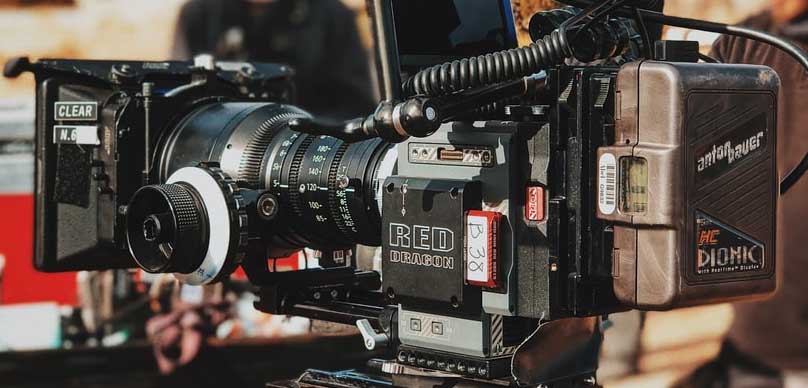
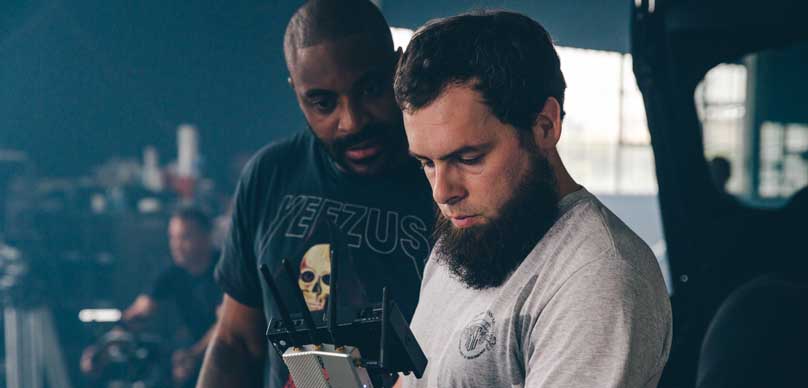
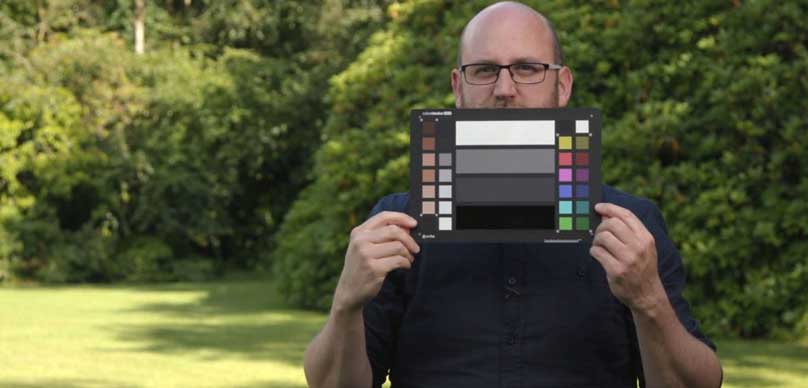
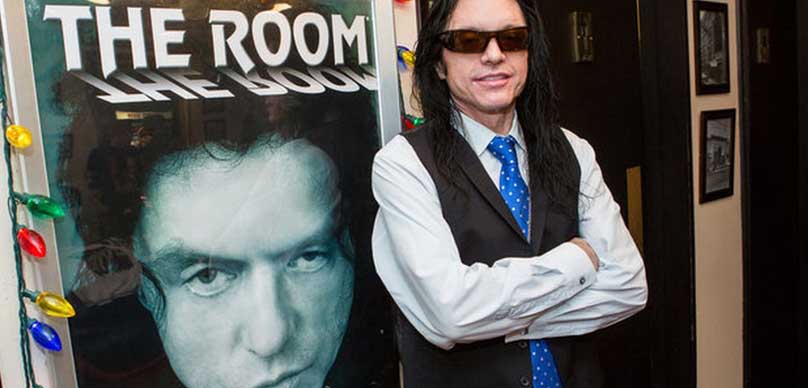

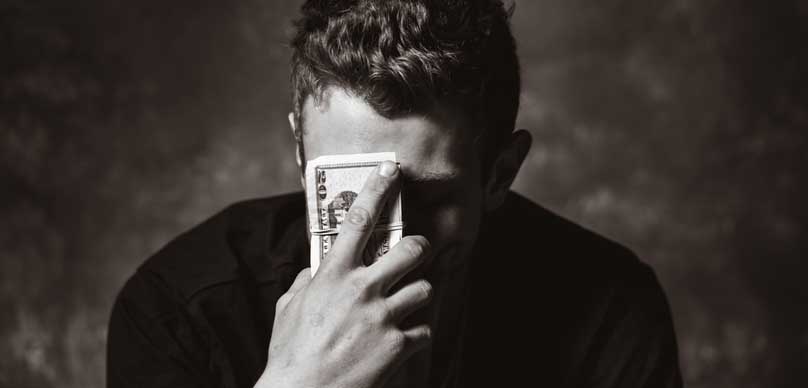
 What is exactly a Collection Account? A Collection Account is an account opened in the name of an independent, neutral, trusted third party, the so-called Collection Account Manager or simply the CAM. The CAM receives into the Collection Account the revenues generated by the worldwide exploitation of the film from the distributors on behalf of the beneficiaries of the film.
What is exactly a Collection Account? A Collection Account is an account opened in the name of an independent, neutral, trusted third party, the so-called Collection Account Manager or simply the CAM. The CAM receives into the Collection Account the revenues generated by the worldwide exploitation of the film from the distributors on behalf of the beneficiaries of the film.
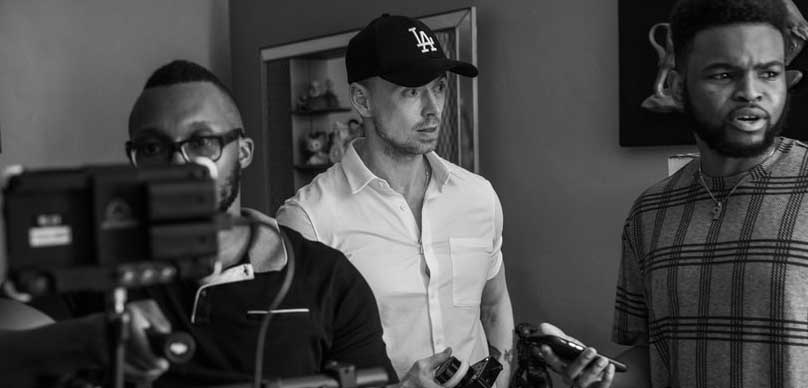

 Tiffany Boyle has been with Ramo Law since 2009, where she works with the attorneys to review, collaborate, develop, submit and supervise creative materials on behalf of clients within the Firm. Boyle actively works with clients in connection to production and distribution opportunities that bring their new material to life. From television (unscripted/scripted) to
Tiffany Boyle has been with Ramo Law since 2009, where she works with the attorneys to review, collaborate, develop, submit and supervise creative materials on behalf of clients within the Firm. Boyle actively works with clients in connection to production and distribution opportunities that bring their new material to life. From television (unscripted/scripted) to 